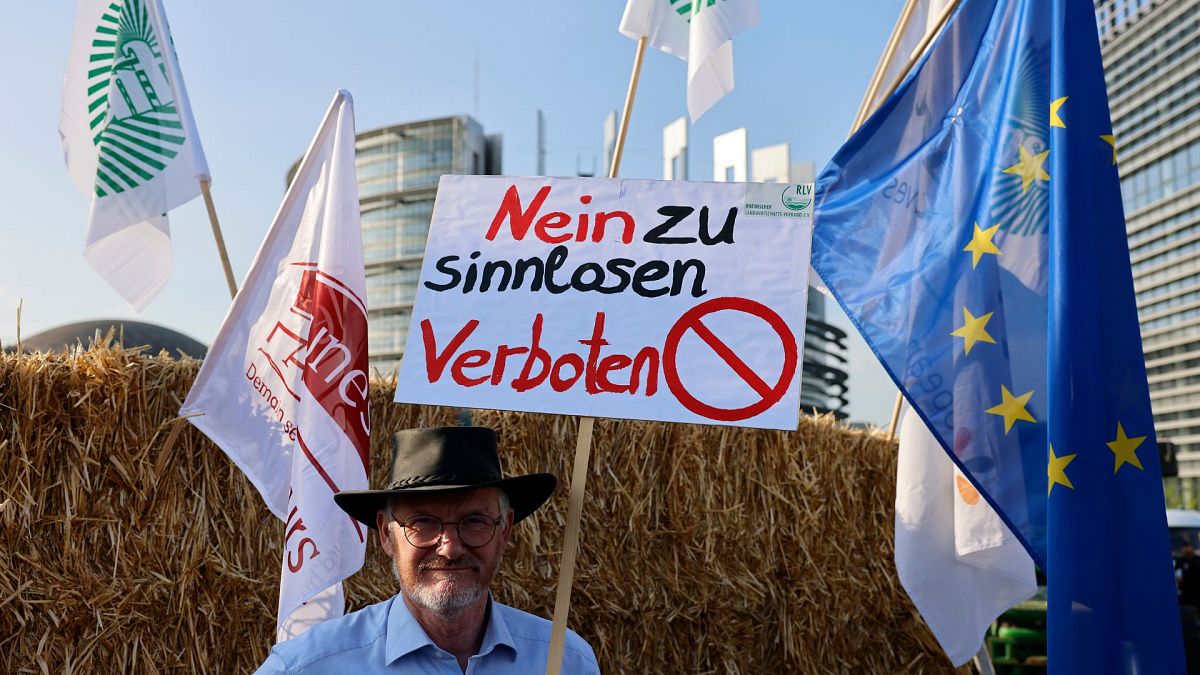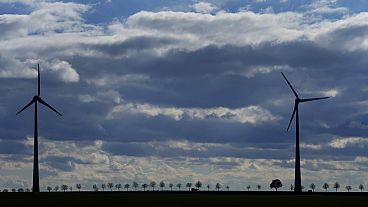Climate change is one of the issues Europe’s voters are most concerned about, a new report finds.
Voters concerned about climate change could shape the outcome of the upcoming European elections, according to a new report.
The European Council on Foreign Relations (ECFR) carried out polling in 11 European countries - nine EU nations that represent 75 per cent of the bloc’s population plus Great Britain and Switzerland.
The report argues that Europe’s voters are split into five ‘crisis tribes’: climate change, global economic turmoil, immigration, the COVID-19 pandemic and Russia’s war in Ukraine.
And those who are part of the climate change ‘crisis tribe’ could make up almost 74 million votes in the upcoming European Parliament election.
Alongside immigration, it is set to be one of the issues most likely to drive the debate in a year with nearly 20 elections across the continent.
Where in Europe are voters most concerned about climate change?
The poll asked people which of the biggest crises in the last 10 years had most changed the way they look at their future. On average 19 per cent of people across all of the countries answered with climate change.
But in Denmark, that number was higher at 29 per cent followed closely by France at 27 per cent.
In other countries, climate change barely registered as a factor in people’s outlook on the future. Just 6 per cent of Estonians, for example, said it was the issue that had most changed their outlook on the future.
And, despite a shift in politics backed by promises of an ambitious stance on EU climate policies, 11 per cent of respondents in Poland viewed climate change as the crisis that had affected them the most.
What else do we know about European climate crisis voters?
Young people unsurprisingly picked the climate crisis over others. Under-29s were the European voters most likely to name it as their biggest concern. People aged 18 to 29 in Great Britain, France, Germany, Denmark and Switzerland picked it above all other issues.
Concern was still pretty high in the 30 to 39 (20 per cent) and 40 to 49 (22 per cent) age groups but fell to 15 per cent for the over 70s.
Men were slightly more likely (20 per cent) to name climate change as the crisis that has most affected them than women (18 per cent) - but the numbers are too close to make any significant distinction.
Climate change was the biggest concern for those with high levels of education, just slightly ahead of economic concerns.
What political parties are Europe’s climate voters backing?
Those who view climate change as the biggest crisis overwhelmingly flock to Green parties or those like the Socialists in Spain or Civic Coalition and Left in Poland.
The three parties with the highest share of supporters who consider climate change to be the issue that has most changed their outlook on the future were the Green Party in France, Great Britain and Denmark.
Interestingly, climate-concerned voters share quite a few common characteristics with the other most influential group - those concerned about immigration. They both believe that if action isn’t taken today, it will be difficult to implement tomorrow, sharing a sentiment that we are living on borrowed time.
But, unlike the immigration voters, the climate concerned continue to be worried about the future even when their favoured political party is in power. Polling in Germany showed that even with a strong climate programme in place, people did not consider the problem solved.
In short, the ECFR report says, voters may see electing a far-right government as the answer to their immigration fears - even if little changes in reality - but they don’t consider the climate emergency over after electing the Greens.
What does this mean for the European election?
It is climate and immigration that are most likely to shape the European election in June, the ECFR says. Recent general election results in the Netherlands support this with Geert Wilders’ anti-immigrant party at the top of the poll and the pro-climate left-wing alliance led by Frans Timmermans in second place.
“Each of Europe’s five crises will have many lives but it is at the ballot box where they will live, die, or be resurrected,” the report’s authors write.
“The European election will not just be a competition between left and right - and Eurosceptics and pro-Europeans - but also a battle for supremacy between the different crisis tribes of Europe.”



